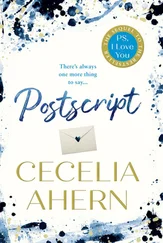“Oh.” Elizabeth blushed. “Please don’t.”
“Believe me, you’ll have a few hundred more offers after I do,” he said before he made his way toward the microphone, decorated with a vine of leaves.
“Excuse me, Ms. Egan.” A member of the bar staff approached her. “You have a phone call just outside at the main desk.”
Elizabeth frowned. “Me? A phone call? Are you sure?”
“You are Ms. Egan, yes?”
She nodded, feeling confused. Who would be ringing her here?
“It’s a young woman, says she’s your sister,” he explained quietly.
“Oh.” Her heart beat wildly. “Saoirse?!” she asked, shocked.
“Yes, that’s it,” the young man said, feeling relieved. “I wasn’t sure how to pronounce it.”
At that moment, it felt like the music got louder, the drumming beats were pounding her head; the fur prints all coming together in a blur. Saoirse never called her; something had to be seriously wrong.
“Leave it, Elizabeth,” Mark said rather forcefully. “Tell the woman on the phone that Ms. Egan is busy at the moment,” Mark said to the member of staff. “This is your night, enjoy it,” he said to Elizabeth softly.
“No, no, don’t tell her that,” Elizabeth stammered. It was ten p.m. in New York, which meant it was three a.m. in Ireland, why was Saoirse calling so late? “I’ll take the call, thank you,” she said to the young man.
“Elizabeth, the speech is about to begin,” Mark warned her as the room began to quieten down and people gathered before the microphone. “You can’t miss it,” he hissed. “This is your moment.”
“No, no I can’t.” She trembled and she left him, heading in the direction of the phone.
“Hello?” she said a few moments later, the concern evident in her voice.
“Elizabeth?” Saoirse’s voice sobbed.
“It’s me, Saoirse, what’s wrong?” Elizabeth’s heart thudded in her chest.
There was silence in the club as Henry made his speech.
“I just wanted to . . .” Saoirse trailed off and was silent.
“You wanted to what? Is everything OK?” she asked hurriedly.
The crowd laughed loudly inside as Henry’s voice boomed, “And last but not least, I’d like to thank the wonderful Elizabeth Egan from Morgan Designs for designing this place so wonderfully in such a short space of time. She’s created something that’s completely different from what’s out there right now, making Club Zoo the most popular, trendy, and newest club on the scene, guaranteed to have people lining up down the block to get in. She’s down the back there somewhere. Elizabeth, give us all a wave, let them know who you are so they can steal you away from me.”
Everyone turned around in silence, searching for the designer.
“Oh,” Henry’s voice echoed. “Well, she was there a second ago, maybe someone’s snapped her up already to do a job.”
Everyone laughed.
Elizabeth looked inside and saw Mark standing alone with two champagne glasses in his hand, shrugging at everyone who had turned to him and laughing. Pretending to laugh.
“Saoirse.” Elizabeth’s voice broke. “Please tell me if there’s something wrong. Have you gotten into trouble again?”
Silence. Instead of the weak sobbing voice Elizabeth had heard previously, Saoirse’s voice had become strong again. “No,” she snapped. “No, I’m fine. Everything’s fine. Enjoy your party,” and she hung up.
Elizabeth sighed and slowly hung up the phone.
Inside, the speech had finished and the drums had started up again, the conversation and drinks continued to flow.
Neither she nor Mark was in the mood to party.
Elizabeth could see a giant figure looming in the distance as she drove down the road that led to her father’s bungalow. She had left work early and was searching for Saoirse; so far nobody had seen her for days, not even the local publican, which made a change.
It had always been a difficulty trying to direct people to the bungalow, as it was so cut off from the rest of the town. The road didn’t even have a name, which Elizabeth thought was appropriate; it was the road that people forgot. Postmen and milkmen new to the job always took a few days to find the address, politicians never canvassed to their door, there were no trick-ortreaters. As a child, Elizabeth had tried to convince herself that her mother had simply gotten lost and couldn’t find her way home. She remembered sharing her theory with her father, who gave a smile so small it was hardly a smile at all and replied, “You know, you’re not far wrong there, Elizabeth.”
That was the only explanation, if you could even call it that, which she got. They never discussed her mother’s disappearance, neighbors and family visiting hushed when Elizabeth was near. Nobody would tell her what had happened and she didn’t ask. She didn’t want that uncomfortable hush to descend on them or for her father to storm out of the house when her mother’s name was mentioned. If not mentioning her mother ensured that everyone was happy, then Elizabeth was happy to oblige, as usual.
She didn’t think she really wanted to know anyway. The mystery of not knowing was more enjoyable. She would create scenarios in her head, painting her mother in exotic and exciting worlds and she would fall asleep imagining her mother stranded on a desert island, eating bananas and coconuts and sending messages in a bottle to Elizabeth for help. She would check the coastline every morning with her father’s binoculars for sign of a bobbing bottle.
Another theory was that she had become a Hollywood movie star. Elizabeth sat with her nose almost up against the TV screen for every Sunday matinee, searching for her mother’s grand debut. But she grew tired of searching, hoping, imagining, and not asking and eventually she no longer even wondered.
The figure in the cottage didn’t move from the window of Elizabeth’s old bedroom. Usually her father would be waiting in the garden for her. Elizabeth hadn’t been inside its walls for years. She waited outside for a few minutes and when there was no sign of her father or of Saoirse, she got out of the car and slowly pushed open the gate, goose pimples rising on her skin from the noise of the gate’s hinges. She wobbled up the uneven stone slabs in her high heels. Weeds popped up from their homes in the cracks to study the stranger trespassing on their territory.
She knocked twice on the green-paint-flecked door and quickly pulled her fist away, cradling it as though it had been burned. There was no answer, yet she knew there was someone in the bedroom to the right. She held out her hand and pushed open the door. There was a stillness inside and the familiar musty smell of what she once considered home hit her and stopped her in her tracks for a few moments. Once she had adjusted to the emotions the scent had woken up inside her, she stepped inside.
She cleared her throat. “Hello?”
No answer.
“Hello?” she called more loudly. Her grown-up voice sounded wrong in her childhood home.
She began to walk toward the kitchen, hoping her father would hear her moving around and come out to her. She had no desire to revisit her old bedroom. Her high heels echoed against the stone floor, another sound unfamiliar to the house. She held her breath as she stepped into the kitchen and dining area. Everything and nothing was the same. The smells, the clock on the mantel, the lace tablecloth, the rug, the chair by the fireplace, the red teapot on the green Aga, the curtains. Everything still had its place, had aged and was faded with time, but still belonged. It was as though no one had lived there since Elizabeth had left. Maybe no one had truly lived there.
She stayed standing in the center of the room for a while, eyeing the ornaments, reaching out to touch them but only allowing her fingers to linger. Nothing had been disturbed; she felt as though she were in a museum, even the sounds of tears, laughter, fights, and love had been preserved and hung in the air like cigarette smoke.
Читать дальше
Конец ознакомительного отрывка
Купить книгу












